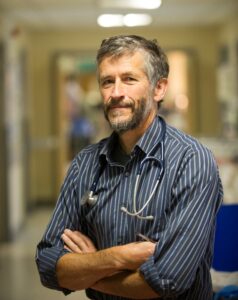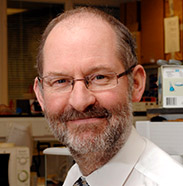2024 winners


Rank Prize for Nutrition
For their work on the use of low energy diets to understand the pathogenesis of type 2 diabetes and subsequent trials that have led to the possibility of disease remission
Professor Mike Lean
Professor Roy Taylor
Professor Roy Taylor and Professor Mike Lean are the winners of the 2024 Rank Prize for Nutrition. Their research has furthered understanding of how type 2 diabetes develops, and has shown for the first time that remission from type 2 diabetes is possible for some by following a low-energy weight management programme. Their research is transforming services for people newly diagnosed with type 2 diabetes by giving them the support to manage their health and reverse the effects of this serious condition.
The Prize will be awarded formally at an event in London on 1 July 2024.

The ground-breaking research by Professors Taylor and Lean has shown that a diagnosis of type 2 diabetes is not a life sentence. Their demonstration that type 2 diabetes can be put into remission by sustained weight loss will empower millions of people globally to change their eating behaviour and to improve their health.”
Professor John Mathers Chair, Nutrition Committee
Their work in practice
Type 2 diabetes has long been associated with overnutrition and obesity. Professor Mike Lean (University of Glasgow) and Professor Roy Taylor (Newcastle University) began researching possible reasons for this independently after both observed some patients appearing to lose their type 2 diabetes after losing weight.
Professor Mike Lean recognised that body fat was being stored in abnormal sites within organs in people with type 2 diabetes, and developed and validated a new clinical weight management programme to offer more effective weight loss in routine primary care.
The Counterpoint study led by Professor Roy Taylor in 2011 confirmed that individuals susceptible to type 2 diabetes held excess fat in their liver and pancreas, leading to insulin resistance and the dysfunction of pancreatic insulin-producing beta cells. His research found that when people with type 2 diabetes lost weight, fat was lost from the liver and pancreas, and these organs regained function. Improvement was particularly significant when weight loss took place early on in the course of type 2 diabetes.
The charity Diabetes UK brought the two researchers together to design and conduct the DiRECT trial (Diabetes Remission Clinical Trial), in which people with type 2 diabetes living with overweight or obesity replaced their usual meals with nutritionally complete formula diet products, followed by the gradual re-introduction of normal food, delivered in UK primary care. On average, participants sustained a weight loss of 10% at 12 months, and almost half of participants had put their type 2 diabetes into remission at one year. A quarter of participants lost 15kg or more, and of these, 86% were in remission. More recently the teams have shown that this intervention is also successful in people with a lower body weight, and that it is effective in people of South Asian origin.
Why the work is important
A programme based on the approach of DiRECT has been piloted by NHS England and is now being rolled out across England: the NHS Type 2 Diabetes Path to Remission Programme. Over 5,000 individuals have been offered the intervention, with early results expected in the near future. The work has been recognised internationally, and the approach is already included as a treatment option in the Joint American Diabetes Association and European Association for the Study of Diabetes Standards of Care document.
The research of Professor Lean and Professor Taylor is making a real difference to the lives of people with type 2 diabetes, by giving them the support and services to manage their health and reverse the effects of this serious condition.
Professor Mike Lean: “My reaction to receiving news of this highly revered prize was initially astonishment, almost shock, to be included among the list of illustrious previous winners. But it is deeply satisfying to realise that people really do understand and appreciate our work. A clinical research career is very long, often lonely or exposed, and doubted or even scorned, as conventional beliefs are challenged. I have been fortunate to have had wonderful loyal colleagues in Glasgow and elsewhere, critical support from Diabetes UK and people living with diabetes, and a 47 year professional friendship with Roy Taylor. Our research work, sometimes desperately tough, has always been infused with a sense of fun. Success in research, making a difference for our patients, is gratifying, and for all this to be recognised by the Rank Prize is immensely rewarding.”
Professor Roy Taylor: “I am delighted to receive this recognition on behalf of the physicists, doctors, nurses, dietitians and others who have provided fantastic team input over many years of this research thrust. The work would not have been possible without the selfless research volunteers, especially those in the initial Counterpoint study who took a leap in the dark in the interests of science. Without the research funding, type 2 diabetes would still be regarded as a lifelong, inevitably progressive condition — a life sentence — and hence particular thanks are due to Diabetes UK who funded most of the work, with lead-in support from The Wellcome Trust and The NovoNordisk Foundation. This funding has enabled testing of a seminal hypothesis and expansion to the present NHS England programme for remission of type 2 diabetes.”
About Mike Lean
Professor Lean established the first Department of Human Nutrition in a Scottish Medical School in 1990, initially funded for 10 years by Rank Prize, with a ‘broad-focus’ strategy for translational, integrative, research and teaching, across all scientific disciplines within Human Nutrition. His main focusses are on obesity, diabetes, metabolic syndrome and health promotion. He is the only doctor on the GMC Specialist Register for Human Nutrition, as well as for Diabetes and Endocrinology and General Internal Medicine. Awards include the Diabetes UK Harry Keen Rank Nutrition Lecture (2014) and Banting Memorial Lecture (2020-21), Tenovus Medal for Research (2017), FRSE (National Academy of Scotland) (2018) and visiting professorships at Otago University and University of Sydney. He has published over 400 Original Research articles with Google Scholar, H-Index =122, and outside of work plays and makes violins, cycles, and climbs mountains.
About Roy Taylor
Roy Taylor qualified in medicine at the University of Edinburgh, and is Professor of Medicine and Metabolism at Newcastle University. He founded the Newcastle Magnetic Resonance Centre in 2006 to develop innovative research techniques. Using these new methods, he showed that his 2008 Twin Cycle Hypothesis could be proven in clinical practice. Type 2 diabetes was shown to be a simple, reversible condition of excess fat within liver and pancreas.
Between 1986 and 2000, Professor Taylor developed the system now used throughout the United Kingdom for screening for diabetic eye disease, with major reduction in blindness due to diabetes across the UK. He has published books in lay language explaining type 2 diabetes (e.g. Life Without Diabetes) plus training books on retinal screening. He has been invited to deliver named lectures including the 2012 Banting Lecture, the 2015 Diabetes UK Harry Keen Rank Nutrition Lecture, the 2016 Samuel Gee Lecture (Royal College of Physicians of London) and Sir Robert W Philip Lecture of The Royal College of Physicians of Edinburgh 2021). He received the 2023 Robert Turner Award for Research Impact. Professor Taylor was made MBE in the King’s 2023 New Year Honours.
Learn more about Professor Taylor’s research through this blog published by Newcastle University to mark World Diabetes Day 2023.


